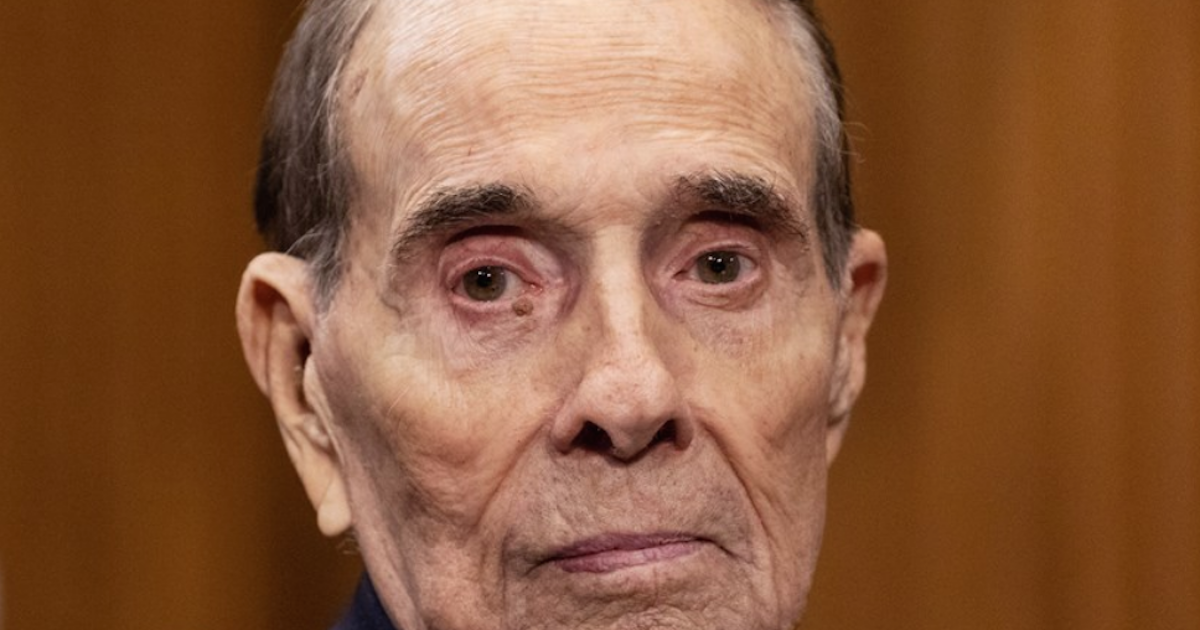Dole's Lung Cancer Announcement
- Former senator Bob Dole, 97, announces he has advanced lung cancer; in the late 90s, he appeared in ads for Viagra, diminishing the stigma around ED.
- Dole starts treatment next week for his lung cancer.
- Treatment options include chemotherapy, immunotherapy, and radiation.
Dole & Erectile Dysfunction (ED)
Dole can be credited, some say, with helping reduce the stigma around erectile dysfunction (ED), as he was an early spokesman for Viagra. Dole appeared in an advertisement for the drug in 1999.
Take it From a Guy Who Looks at Diseased Lungs Every Day Stop Smoking
Advanced Lung Cancer Treatments
Stage four lung cancer, like Dole’s, is typically treated with chemotherapy, radiation therapy, targeted drug therapy, and immunotherapy. In a previous interview, Dr. Brendon Stiles, a Thoracic Surgeon at Weill Cornell Medicine and NewYork-Presbyterian, explains various treatment options for late-stage lung cancer.
Related: Did Rush Limbaugh Smoke? And Why That's Not the Most Important Question about Lung Cancer
“One of the main concerns facing physicians is the potential side effects of any cancer treatment,” says Dr. Stiles. “Where we could potentially run into trouble is that some of these (immunotherapy) drugs can cause pneumonitis, inflammation in the lungs. Chemotherapy can cause immunosuppression so that the combination of those may be tough for some patients to take," he says.
"If a patient is at the start of their stage four course and treatment needs to get started, I personally would offer our standard treatment. If they've already had twelve months of immunotherapy and they're doing well, and things are going okay, maybe it makes sense to skip the dose to keep them away from a medical establishment right now and keep them safe," he says, of treating advanced lung cancer during COVID-19.
What Late Stage Lung Cancer Patients Should Know About Immunotherapy During Coronavirus
Coping with a Diagnosis
Getting a cancer diagnosis of a late-stage cancer can be challenging, particularly during a pandemic. But there are resources out there to help cope with the complicated emotions that may result from a diagnosis.
Related: A Major Step in the Cancer Journey: Learning to Deal With Vulnerability
Some people experience grief, depression, and anxiety after a cancer diagnosis. Therapy, support groups, and other formal resources can be a helpful way to process this new reality. Camila Legaspi was in high school when she lost her mom to breast cancer, and she credits therapy with saving her, and seeing her through that rough period. In a previous interview, Legaspi says, “Embrace the situation as best as you can, because the reality is … that it sucks.”
“I was dealing with some really intense anxiety and depression at that point,” she says. “It just changed my life because I was so drained by all the negativity that was going on. Going to a therapist helped me realize that there was still so much out there for me … that I still had my family, that I still had my siblings."
"Therapy Saved My Life": After Losing A Loved One, Don't Be Afraid To Ask For Help
Learn more about SurvivorNet's rigorous medical review process.


